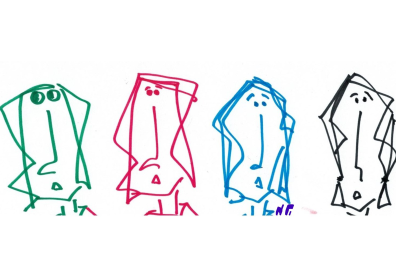"Knowing and knowing" in the oral language course

If oral production in language is defined as a skill in a social situation that has an informative and communicative aim, the situation in a language course corresponds, on the contrary, to an exchange between teachers and learners (and between learners themselves) with a didactic aim. It's a transitional type of exchange, where the aim is not the exchange of information itself, but the exchange as a "pretext" for learning. The teacher is there to ensure that exchange situations are created, mostly simulated, but as close as possible to an authentic situation.
In the oral practice course the student is invited to mobilize linguistic, discursive, sociolinguistic and interactional resources. This is a collaborative and contextual skill, insofar as it calls on a set of resources to be implemented in a defined situation and which are not identically transferable to any context.
According to the Centre National de Ressources Textuelles et Lexicales the verb connaître signifierait, inter alia, "to know something most often in a particular field, by means of systematic study and/or practice, experience". The emphasis is on the content of the knowledge e.g. knowing the alphabet, knowing a language, a scientific discipline, knowing (one's) trade, knowing plants, etc. As for the verb savoir, the proposed meaning would concern the fact of "being able to perform a sustained activity, thanks to the acquisition, through study, through application, of theoretical and practical knowledge, and as a result of an intellectual operation; being able to."
While knowledge is organized around vocabulary, grammar and spelling, skills for their part are organized into reading, writing and expressing oneself orally. To
"speak" a language, therefore, it's not just a matter of acquiring vocabulary and grammar rules, but more a matter of understanding the organization of a language action, or more generally of a practical activity, knowing how to interpret the various markers that punctuate the exchange and sometimes modify its meaning, and identifying the various lexical or syntactic features of the language spoken.
Teachers are ill-equipped to discern what in discourse work belongs to knowledge and what to knowledge (highlighting knowledge). They note students' ease and difficulty with such and such other discursive tasks, and are then led to propose oral practice situations that promote the appropriation and updating of knowledge through the learning of new knowledge.
In teaching that is based solely on the statement of knowledge, students will not have the opportunity to put their knowledge into practice in situations conducive to learning. On the contrary, in teaching that emphasizes adaptation to situations, students are led to accomplish tasks, one after the other, without them being linked to concrete knowledge or related to a single type of know-how. Thus, the question arises of the relevance of teaching organized into distinct parts: knowledge whose default instance of formulation and validation is the teacher, and knowledge whose main actor is the student.
In order to overcome this typified role dichotomy, couldn't teaching be apprehended as a constant back-and-forth between knowledge and know-how updated and contextualized by the student as actor and validator in situations created jointly with another student or the teacher in a language course?
Proposed working themes
- What knowledge and skills to teach and prioritize in student groups marked by heterogeneity?
- The working group in the oral language practice course as an engine for learning knowledge.
- How to reconcile the breadth of personal knowledge and the limits of students' communicative language skills?
- How can shared language knowledge be used to the benefit of individual knowledge to be acquired?
- Promote and invest students' general skills (knowledge, know-how, self-knowledge, learning skills) in order to develop their communicative language skills.
This first study day is part of CREE's "Teaching languages: innovative approaches" project.
Presentations should be sent by March 3 to the following two addresses: View e-mail and View e-mail
The day will take place at Inalco, Paris in face-to-face sessions and with the possibility of online connection.
Bibliography
- BAUTIER Elisabeth and Patrick RAYOU, Les inégalités d'apprentissage. Programmes, pratiques et malentendus scolaires, PUF, coll. "Education et société", 2009.
- BOURGUIGNON Claire, Pour Enseigner les Langues avec le CECRL, clés et conseils, Paris, Delagrave Edition, 2010.
- DIAS-CHIARUTTINI Ana and Joaquim DOLZ (eds.), Nouveaux objets et nouveaux contextes d'enseignement de l'oral, Repères, n° 68, 2023, accessed December 19, 2024. DOI: https://doi.org/10.4000/reperes.5963
- DUPONT Pascal and Michel GRANDATY, "De la dichotomie oral enseigné-oral pour apprendre à la dialectique oral travaillé-oral enseigné", Repères, n° 54, 2016, pp. 7-16, accessed December 19, 2024. DOI: https://doi.org/10.4000/reperes.1071
- LAPARRA Marceline, "L'oral, un enseignement impossible? ", Pratiques [online], n° 137-138, 2008, p. 117- 134, accessed December 19, 2024. DOI: https://doi.org/10.4000/pratiques.1155
- MARGOLINAS Claire, "Connaissance et savoir. Concepts didactiques et perspectives sociologiques?", Revue française de pédagogie, Sociologie et didactiques : traverser les frontières, Philippe Losego (ed.), n° 188, 2014, p. 13-24, accessed December 19, 2024, DOI: https://hal.science/hal-01176060/document
- NARCY-COMBES Jean-Paul, "Quelle complémentarité entre les savoirs d'action et les savoirs théoriques? Quelques significations à attribuer à l'action enseignante.", in coll. with CICUREL F., in AGUILAR J., BRUDERMANN C., LECLERE M. (éds.), Languages, cultures et pratiques en contexte : interrogations didactiques, 2014, Paris, Riveneuve, p. 347-367.
- Outils et Ressources pour un Traitement Optimisé de la Langue (Ortolang), Centre National des Ressources Textuelles et Lexicales (CNRTL), CNRS, Atilf, Nancy, accessed December 19, 2024, https://www.cnrtl.fr/definition/
- RAVAZZOLO Elisa, Carole ÉTIENNE and Biagio URSI, "Apprendre les interactions en classe de français : enjeux et pratiques", Recherches en didactique des langues et des cultures [online], n° 18-3, 2021, accessed December 19, 2024. DOI : https://doi.org/10.4000/rdlc.8989